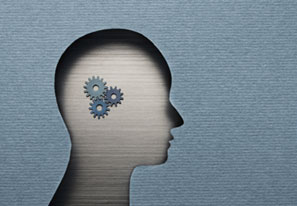
Free: Why Science Hasn’t Disproved Free Will, by Alfred R. Mele (Oxford, 99 pp., $14.95)
In his Philosophical Investigations, Ludwig Wittgenstein complained that “in psychology there are experimental methods and conceptual confusion.” What he meant is that academic psychologists too often interpret empirical evidence in light of unexamined and dubious metaphysical assumptions. What is presented as good science is really just bad philosophy.
The recent spate of neuroscientific and psychological literature claiming to show that free will is an illusion provides a case in point. Philosopher Alfred Mele’s new book, Free, is a brief, lucid, and decisive refutation of these arguments. Mele demonstrates that scientific evidence comes nowhere close to undermining free will, and that the reasoning leading some scientists to claim otherwise is amazingly sloppy.
Perhaps the best known alleged evidence against free will comes from the work of neurobiologist Benjamin Libet. In Libet’s experiments, subjects were asked to flex a wrist whenever they felt like doing so, and then to report on when they had become consciously aware of the urge to flex it. Their brains were wired so that the activity in the motor cortex responsible for causing their wrists to flex could be detected. While an average of 200 milliseconds passed between the conscious sense of willing and the flexing of the wrist, the activity in the motor cortex would begin an average of over 500 milliseconds before the flexing. Hence the conscious urge to flex seems to follow the neural activity which initiates the flexing, rather than causing that neural activity. If free will requires that consciously willing to do something is the cause of doing it, then it follows (so the argument goes) that we don’t really act freely.
As Mele shows, the significance of Libet’s results has been vastly oversold. One problem is that Libet did not demonstrate that the specific kind of neural activity he measured is invariably followed by a flexing of the wrist. Given his experimental setup, only cases where the neural activity was actually followed by flexing were detected. Also, Libet did not check for cases where the neural activity occurred but was not followed by flexing. Hence we have no evidence that that specific kind of neural activity really is sufficient for the flexing. For all Libet has shown, it may be that the neural activity leads to flexing (or doesn’t) depending on whether it is conjoined with a conscious free choice to flex.
There’s a second problem. The sorts of actions Libet studied are highly idiosyncratic. The experimental setup required subjects to wait passively until they were struck by an urge to flex their wrists. But many of our actions don’t work like that—especially those we attribute to free choice. Instead, they involve active deliberation, the weighing of considerations for and against different possible courses of action. It’s hardly surprising that conscious deliberation has little influence on what we do in an experimental situation in which deliberation has been explicitly excluded. And it’s wrong to extend conclusions derived from these artificial situations to all human action, including cases which do involve active deliberation.
Even if the neural activity Libet identifies (contrary to what he actually shows) invariably preceded a flexing of the wrist, it still wouldn’t follow that the flexing wasn’t the product of free choice. Why should we assume that a choice is not free if it registers in consciousness a few hundred milliseconds after it is made? Think of making a cup of coffee. You don’t explicitly think, “Now I will pick up the kettle; now I will pour hot water through the coffee grounds; now I will put the kettle down; now I will pick up a spoon.” You simply do it. You may, after the fact, bring to consciousness the various steps you just carried out; or you may not. We take the action to be free either way. The notion that a free action essentially involves a series of conscious acts of willing, each followed by a discrete bodily movement, is a straw man, and doesn’t correspond to what common sense (or, for that matter, philosophers like Wittgenstein or Aquinas) have in mind when they talk about free action.
Other arguments against free will are no better. For example, in psychologist Stanley Milgram’s famous obedience experiments, participants were instructed to administer what they falsely supposed were genuine electric shocks to people who gave incorrect answers to questions put to them. Many participants reluctantly obeyed these commands even when they seemed to be causing severe pain. As with the neuroscientific evidence, some have argued that such data casts doubt on free will. But as Mele says, it’s difficult to see “exactly what the argument is supposed to be.” Is the claim that Milgram’s experimental setup made it inevitable that participants would obey? That can’t be it, because not every participant obeyed the commands. Is the idea merely that situations exist in which people find it difficult to disobey authority figures? If so, what defender of free will ever denied it?
Mele’s book shows that, if anyone has been too quick to follow authority, it’s those who swallow dubious philosophical claims merely because they are peddled by scientists.